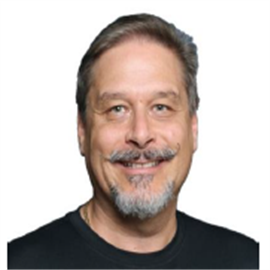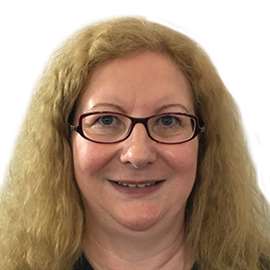A voice for the midstream in Washington, D.C.
February 03, 2025
COMPRESSORtech2 speaks with Stuart Salters, V.P. of Federal Affairs for GPA Midstream
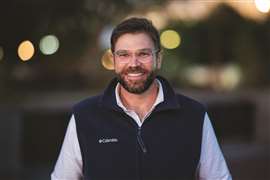
Late last year, COMPRESSORtech2 spoke with Stuart Salters, who was recently named vice president of Federal Affairs for GPA Midstream. In this role, Saulters will lead the association’s federal advocacy efforts, working closely with government agencies, lawmakers, and GPA Midstream members to help ensure that energy and climate policies support the efficient, affordable, and reliable delivery of energy. The following is an edited version of that discussion. The full interview can be viewed here.
Q: Stuart, thank you for joining us today. To start, can you share a bit about your background and how you ended up in Washington D.C.?
A: I’m happy to. I grew up in Mississippi, and there was really no place else I wanted to go to college but Mississippi State University. It’s in my family—my dad, mom, and sister all went there. I pursued civil engineering there, and it turned out to be a great decision because Mississippi State has a strong engineering program. After graduation, I began my career at Chevron, working in their refineries and later in the upstream sector, as a facility engineer in the Northeast. I worked in Western Pennsylvania, Ohio, and West Virginia, all of which gave me valuable experience in the energy sector.
But I’ve always had an interest in public policy and government relations. After six years at Chevron, I moved to Washington, D.C., to work for the American Petroleum Institute (API) where I focused on pipeline safety policy. Later, I transitioned to the American Public Gas Association (APGA), where I worked on distribution issues and energy choice policies. Now, I’m excited to be at GPA Midstream, working on issues that impact gathering lines and processing plants.
Q: Why does the midstream sector need a voice in Washington, D.C.?
A: The midstream industry often works behind the scenes—like offensive linemen in football, we only get noticed when we make a mistake. But in Washington, we need a voice because policy decisions affect us. If we don’t have someone advocating for the midstream sector specifically, important issues might not get the attention they deserve. Our industry involves complex issues that differ from those in refining or upstream. For instance, the way we handle pipeline safety or methane emissions is different from other sectors, and we need targeted representation to ensure those nuances are addressed.
Q: What is the biggest misconception about the industry you’ve encountered while working with policymakers?
A: One major misconception is that lawmakers don’t always understand the proactive steps we’re already taking to improve safety and environmental performance. A lot of people don’t realize how much effort is going into reducing methane emissions and ensuring pipeline safety. We’re already using technology to detect and fix leaks, and improving control systems to prevent them in the first place. The public and some policymakers may not see how much progress we’ve made because they focus more on the potential for regulation rather than recognizing the improvements we’re already implementing, without regulations.
There’s also a misunderstanding about how regulations should be shaped. We’re not against regulation—government oversight is necessary. But we want to ensure that new regulations aren’t overly burdensome or counterproductive, especially when they overlap with the proactive work we’re already doing. It’s about finding a balance between maintaining safety standards and not stifling innovation in the industry.
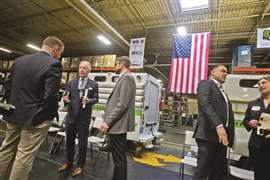
Q: What key issues will you be focusing on in the next year or so?
A: Given the results from the November 2024 elections, there are definitely shifts on the horizon. However, the key issues won’t change much. We’ll continue to focus on environmental policies and pipeline safety. We have to be ready to work with the next administration and Congress to ensure that policies are both practical and sustainable. We hope to find common ground, especially on environmental measures like methane emissions, where there’s room for improvement but also a need for practical approaches.
The goal is to find policies that allow for energy production while ensuring it’s done in a safe and sustainable manner. While the next administration may have different priorities, we’re looking for opportunities to work together. Whether it’s about evaluating methane leaks or improving pipeline safety, we’ll continue to advocate for balanced, effective policies.
Q: You mentioned the shift in Washington following the elections. How do you think this will affect your strategy?
A: That’s right—the elections will certainly impact the approach. While the issues will remain largely the same, the strategy and tactics we use to engage with the next administration will evolve. With the leadership changes, there will be a new way of handling things. For example, in the current administration, we might have had a more adversarial relationship on some policies, but that doesn’t mean there won’t be anything to collaborate and find common ground on with the incoming Trump administration.
We’ve seen individuals like Doug Burgum, nominated for Secretary at the Department of the Interior, and Chris Wright, nominated for Secretary of Energy, who understand the balance between supporting energy production and ensuring environmental sustainability. Having individuals who understand the practical realities of the industry is a positive development for our goals.
Q: Your background is in engineering, not political science. How does that influence your approach to your work now?
A: My engineering background is incredibly helpful in this role. It allows me to speak from experience and understand the practical implications of policies. When I was at Chevron, I was hands-on in operating facilities and working with the people who maintain these systems. I was trained to look at things from a practical, solution-oriented perspective.
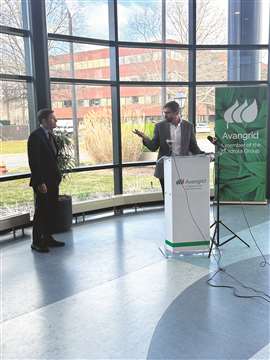
When I engage with policymakers, I can present issues in a way that’s grounded in real-world operations. I can explain why certain policies might not be feasible or practical based on how things actually work. Engineers are trained to solve problems, and that mindset helps me navigate the sometimes complex and theoretical aspects of policy discussions.
Q: For those working in the midstream sector, what advice do you have on how they can get involved in advocacy and policy discussions?
A: Advocacy is crucial, and every individual in the industry can make a difference. While not everyone may want to be directly involved in policy-making, those working in the field—whether operators, engineers, or mechanics—have invaluable perspectives to share. If you’re passionate about policy, you don’t have to be in Washington to make your voice heard. You can reach out to us at GPA Midstream to learn how you can get involved.
There are many ways to participate: you can engage through our committees on legislative issues, safety, or regulations. You can also take more direct action by visiting your elected officials’ offices, either in D.C. or in your home state, to share your experiences and concerns. These personal interactions can be powerful. We’re here to help individuals like you amplify your voice and ensure policymakers understand the real-world implications of their decisions.
Q: How can people stay informed about policy issues and get involved in the advocacy efforts you’re leading?
A: Staying informed is key, and we encourage people to follow updates from industry trade associations like GPA Midstream. We offer resources, hold events, and provide updates on ongoing policy discussions. Our website and newsletters are a great place to start, and we also encourage people to attend industry conferences and engage directly in our advocacy efforts.
The way our government works is complex, and engaging in policy can seem overwhelming. However, when individuals work together, we can make a significant impact. By staying connected with industry leaders, engaging with your elected officials, and being proactive in understanding the issues, we can shape the future of our industry in a way that benefits everyone.
Q: Final thoughts?
A: I would just encourage everyone in the midstream sector to remember that their voices matter. Whether you’re on the ground working with assets or involved in policy work, there’s a role for you to play. Let’s continue to work together to ensure that we’re not just keeping up with change, but also actively shaping it to ensure the success of our industry in our continued goal to provide sustainable energy.
Images are available.
MAGAZINE
NEWSLETTER

CONNECT WITH THE TEAM

